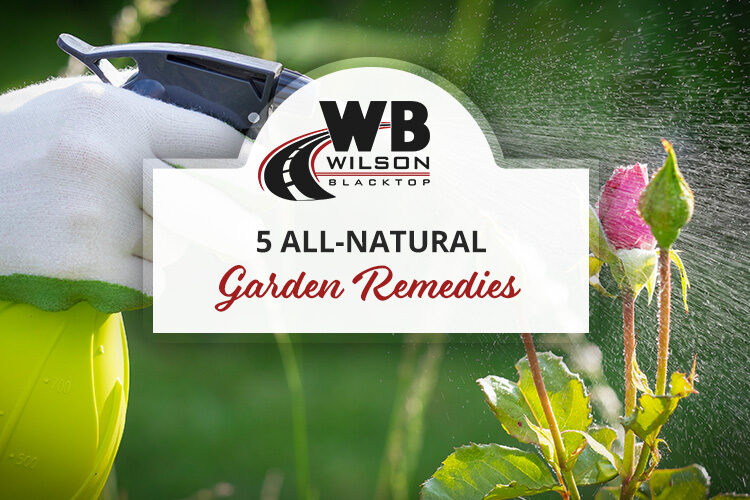
- By admin
- In Landscaping
5 All-Natural Garden Remedies
How can we use all-natural garden remedies and eliminate toxins? Avoiding harsh chemicals in our lives has become paramount. From beauty products to lawn fertilizers, the move to more environmental friendly alternatives is everywhere. And why not? Many healthy substitutions are made with common ingredients and cost less than their chemical counterparts.
Let’s jump in and look at just a few:
All-Natural Garden Remedies
1 – DISH SOAP
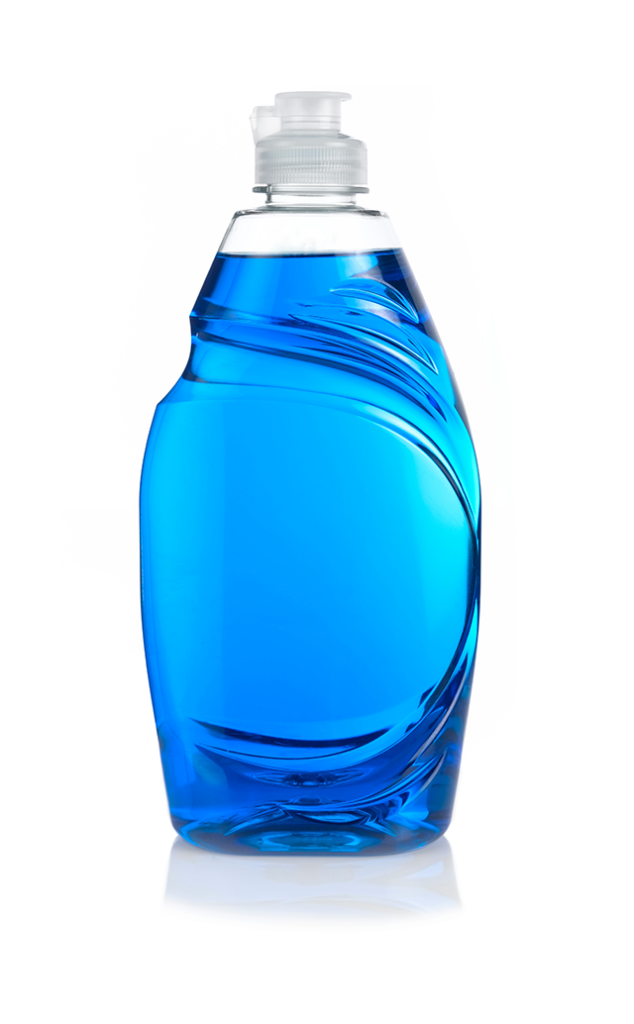
Believe it or not, one of the best natural weapons against beetles, aphids, and mites is found in your kitchen. Ordinary old dish soap can be the solution and it’s not going to break the bank to make.
In a spray bottle, mix 1.5 teaspoons of dish soap with a quart of water and gentle shake to mix. Thoroughly saturate the affected plant, from top to bottom and underside of leaves, stems and blooms each day until the pests have disappeared.
Caution: Do not use dish soap with bleach and do not spray in the heat of the day. It’s best to apply in the early morning or evening.
2 – WHITE VINEGAR
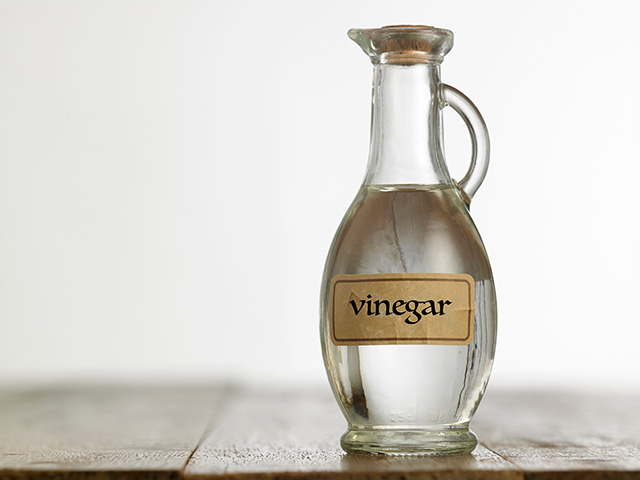
If Bugs Bunny’s distant relatives are wreaking havoc in your garden, one sure-fired way to send them packing is white vinegar. They’ll wish they had made the left turn in Albuquerque when they come up on a cotton ball soaked in vinegar.
Simply soak several cotton balls in white vinegar and then put them around your landscaping or garden inside a plastic container with holes poked in it. (Old 35mm film canisters are perfect.) Be careful not to get the vinegar on the plants themselves as straight vinegar can burn the leaves.
And speaking of burning leaves, this is what makes vinegar the ideal alternative to chemical weed killers. Spray vinegar on weeds to eliminate them. Just be very cautious when using this all-natural garden remedy. It doesn’t discriminate and will be as deadly to your prized plants as it is to the weeds.
3 – NEEM OIL
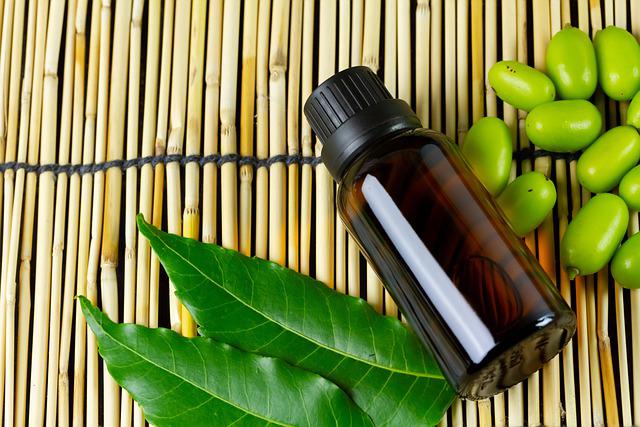 Image by Alongkorn Tengsamut from Pixabay
Image by Alongkorn Tengsamut from Pixabay
Not only is neem oil a natural bug spray, but it also acts as a fungicide. Neem oil is very effective in treating your plants for over 200 kinds of pests. Caterpillars, mites, and beetles are some of the most common bugs deterred by neem oil spray, but it is not harmful to humans, pollinators, or earthworms.
Neem oil spray can be purchased ready-to-use at most garden supply centers. You can also mix a teaspoon of neem oil with 2 teaspoons of liquid dish soap and a quart of water to create your own concoction. Follow the directions on the packaging for the ready-to-use kind or spray the homemade variety once every other week. Use this and other all-natural garden remedies once a week if you have a severe infestation.
4 – BAR SOAP
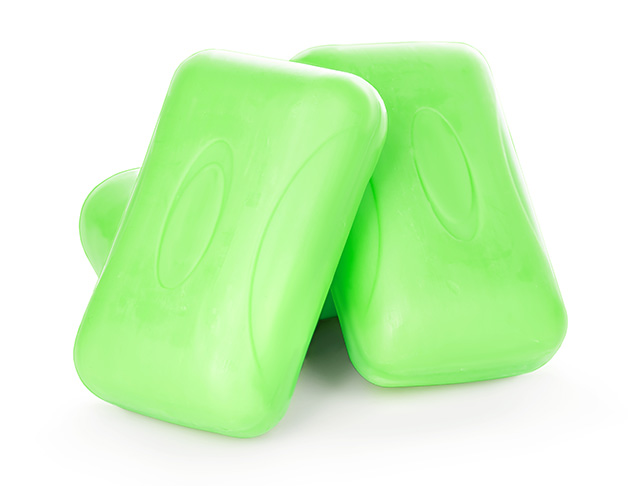
Spotting a white-tailed deer in a field, munching on some tall grass can look like a fairy tale. And if the momma has a couple of white-spotted youngsters trailing along behind her, the “aww’s” that come out of your mouth are involuntary. But, as anyone in the Ohio Valley will tell you, deer are not a friend to your landscaping or gardens. They like your vegetable garden for dinner, your fruit trees for dessert, and they like to use smaller ornamental trees to rub up against.
You may have an all-natural deterrent in your linen closet. A strong-smelling bar soap with a high content of tallow fatty acids like Irish Spring will do the trick. Cut the original scent bar of Irish Spring in half or thirds and drop the pieces into a mesh bag. Tie the end closed with twine and leave a little extra to tie the bag to the tree, fence, or stake where deer are a problem. You’ll want them to be around the same height as the nose of a deer for maximum impact.
5 – GARLIC and MINT
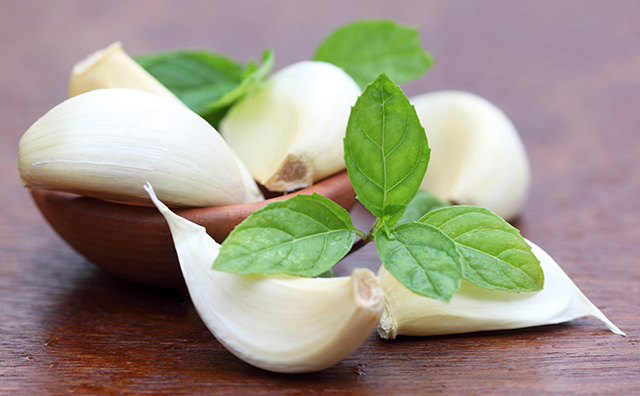
Finally, this all-natural combo of garlic, mint, and cayenne pepper will keep plant-munchers at bay and save your prized garden. It not only works on insects, but the birds will stay away too! Win, win!
To begin, add 2 heads of garlic and 3 cups of mint leaves to a food processor and pulse until broken down. Remove the mixture to a pot on the stove with 12 cups of water and 2 teaspoons of cayenne pepper and heat to boiling. Remove from the heat and cover until the next day. Now strain the boiled mixture into a spray bottle along with a few squirts of dish soap. Give it a shake and start spraying your garden plants. No more feast for the wildlife!
There are countless all-natural garden remedies out there for any issue you might experience in your landscaping or garden. The trick is to keep trying until you find the one that works in your situation.
Wilson Blacktop is your local landscaping materials supplier. We hope this article helps you enjoy your outdoor space without having to use harsh, toxic chemicals to keep pests away from your space.





